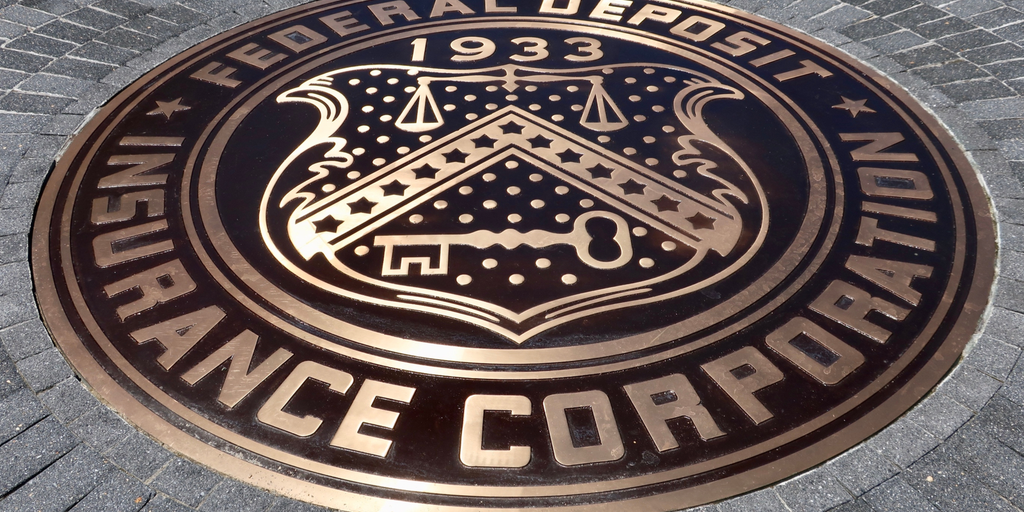Law and Order
Pakistani Trader Kidnapped, Forced to Hand Over $340,000 in Crypto
Published
1 day agoon
By
admin

A Pakistani cryptocurrency trader, Mohammed Arsalan, was kidnapped in a scheme that involved local law enforcement officers and released after paying his captors $340,000 in crypto.
Investigation into the case led to seven arrests so far, according to a recent report by local English-language news outlet Dawn. Per the report, a suspected policeman is still at large and an officer of the Pakistani Counter-Terrorism Department was among the arrested.
The kidnappers reportedly forced the 30-year-old trader to pay $340,000 from his Binance account balance. After multiple contacts with the kidnappers pretending to be looking to buy U.S. dollars from the victim, five men in civilian clothes forcibly abducted the trader after gagging him in a police vehicle on Dec. 25.
The news follows November reports that a Ukrainian man was coerced into transferring 250,000 worth of stablecoin USDT after a group of criminals got hold of him. Also in November, police started investigating the high-profile abduction of Dean Skurka, CEO of Toronto-based crypto firm WonderFi Technologies, who was abducted and released after the payment of a $720,000 ransom.
Jeremiah O’Connor, chief technology officer and co-founder at crypto cybersecurity firm Trugard, told Decrypt that the news “underscores a troubling, though not unprecedented, trend of kidnapping and extortion targeting individuals for their digital assets.” Byron Boston, former Dallas police officer and CEO of crypto firm Crypto Track, agreed and notedthat “cryptocurrency-related kidnappings are increasingly common.”
O’Connor’s recommendations include minimizing public exposure, using multi-signature wallets and time-locked transactions, and practicing general situational awareness.
“The rise in crypto-related extortion and kidnappings calls for stronger international collaboration among law enforcement agencies, improved regulatory frameworks, and enhanced education on operational security for those engaged in the crypto space,” he added.
The people involved in the crime were habitual offenders who had previously committed similar crimes, according to the local report. An inspector reassured reporters that the law enforcement officers connected to the kidnapping would see no leniency.
Boston noted that “the involvement of corrupt law enforcement officials in kidnappings further complicates investigations.” He explained that “criminals with access to sensitive information or investigative methods can undermine efforts to trace and recover stolen funds.”
Arsalan expressed his anger in a Dec. 31 Facebook post. He wrote that he is “ashamed to be a citizen of this country.” He ended the message by saying: “Don’t bother me by calling or messaging me. I am very depressed, mentally dead.”
Edited by Stacy Elliott.
Daily Debrief Newsletter
Start every day with the top news stories right now, plus original features, a podcast, videos and more.
Source link
You may like


UK Court Denies James Howell’s Claim on £600M Bitcoin From Landfill


SHIB, PEPE to be replaced by this token, according to popular analyst


Dogecoin May Beat Bitcoin In Next 6 Months


Cardano (ADA) Price Prediction January 2025, 2026, 2030, 2040


Using Mining To Create More Fully Validating Bitcoin Users


Mastercard brings p2p aliases for crypto transfers in UAE, Kazakhstan: report
Law and Order
FDIC Took Issue With Banks Using Public Blockchains Like Ethereum, FOIA Docs Reveal
Published
6 days agoon
January 4, 2025By
admin

American banks seeking to offer customers services built on public blockchain networks appear to have been discouraged from doing so by the Federal Deposit Insurance Corporation, documents released Friday revealed.
The disclosure came courtesy of a trove of newly unredacted crypto-related correspondences between the FDIC and member banks. San Francisco-based cryptocurrency exchange Coinbase obtained the documents via the Freedom of Information Act, or FOIA. Last month, Coinbase secured heavily redacted versions of 23 such letters.
Thanks to a court order, the contents of those letters—and two new ones—were revealed today in their (near) entirety.
One of those letters, sent in March 2022 from the FDIC’s New York office to a member bank, detailed how the federal agency had learned that the bank planned to roll out a “Bank Digital Deposit” program built to run on a public blockchain. The name of that public blockchain remains redacted.
In the letter, the FDIC appears to take issue with the bank opting to use a public blockchain instead of a private, permissioned network. Blockchains like Ethereum and Solana are decentralized and permissionless, meaning that activity on them is fully public and cannot be overridden by third-party human administrators. By contrast, private blockchain networks, like those used by nation states to issue central bank digital currencies, place limits on who can use them and for what purpose.
The FDIC is apparently not a fan of member banks launching products on anything-goes, fully transparent networks. The regulator instructed the New York bank in the March 2022 letter to submit to a new, detailed review process before launching any products on public blockchains.
Other letters disclosed Friday show the FDIC ordering member banks to halt the implementation of services related to the buying and selling of Bitcoin. Sections of the same letters unredacted last month showed the FDIC instructing member banks to “pause all crypto asset-related activity.”
Coinbase Chief Legal Officer Paul Grewal touted today’s revelations as further proof of an alleged Biden administration initiative waged against the crypto industry via banking regulations that’s become known as “Operation Chokepoint 2.0” (borrowing the name from the Obama era scheme that targeted firearms dealers and payday lenders).
“They show a coordinated effort to stop a wide variety of crypto activity,” Grewal said on X (formerly Twitter) of Friday’s FDIC letters.
Daily Debrief Newsletter
Start every day with the top news stories right now, plus original features, a podcast, videos and more.
Source link
Law and Order
Crypto Crystal Ball 2025: How Hard Will Trump Fight for Bitcoin and Crypto?
Published
1 week agoon
December 30, 2024By
admin

Another year is done, and crypto is somehow at a defining crossroads—again. After surviving an all-out regulatory crusade in the United States and weathering the final dregs of the last bear market, the digital assets industry appears ascendent once more. By all accounts, 2025 looks poised to be crypto’s greatest year yet.
But how, exactly, the industry opts to navigate this moment of opportunity is far from set in stone. Regulatory moves, technical updates, and market trends could all still break a thousand different ways.
Fret not, dear reader. Decrypt is here to predict the unpredictable. Here are some key questions that experts say are likely to define the coming year—and what their answers could mean for you.
First up: How much political capital will Donald Trump be willing to spend on crypto?
In November, the president-elect’s victory sent crypto markets soaring. It seems pretty clear that the days of the U.S. government doggedly attacking the industry’s key players are through—and that alone is a huge development.
But will the Trump Administration be willing to actively pursue policies that industry experts say are crucial to ensuring crypto’s long-term success?
“The end of the hostility is going to in and of itself be a boon,” Kristin Smith, the CEO of the Blockchain Association, a prominent crypto lobbying group, told Decrypt. “But we need more than that.”
Even though Trump made countless promises about the industry on the campaign trail, such commitments to particular constituencies routinely get lost in the shuffle once a president takes office and gets inundated by competing concerns—all of which will be urgent.
“There’s going to be a lot of priorities across the Trump Administration,” Smith said. “If we don’t have somebody there who’s able to execute on those, that’s going to be a problem.”
One positive indicator to Smith that digital assets policy could meaningfully advance in 2025 is the fact that, in an historic first, the Trump White House has appointed a dedicated AI and crypto czar. Venture capitalist David Sacks accepted the position in early December.
A White House crypto advisor will “ensure that things get done” by coordinating the Administration’s digital assets vision across the White House, executive agencies, and Congress, Smith said.
That sort of focus could have a massive and immediate impact on crypto’s strength, reach, and influence.
Take the repeal of SAB 121, a U.S. Securities and Exchange Commission (SEC) rule that discourages American banks from custodying crypto assets. In May, bipartisan majorities in both chambers of Congress voted to nullify the rule, but President Joe Biden shortly thereafter vetoed the effort.
If Congress was merely urged to pass the same bill again, and Trump signed it into law, that single move could usher in a whole new chapter for crypto in the United States, Smith maintained.
“It really opens up a whole new market,” she said.
Even though Bitcoin and Ethereum spot ETFs are currently trading on Wall Street, an abundance of yellow tape and crypto-related anxieties have kept the majority of American investors and businesses on the sidelines.
Allowing mainstream banks to hold crypto themselves—and passing a basic market structure bill that formally legalizes the industry—would unlock untold amounts of still queasy TradFi capital for the digital assets industry, Smith said. Such basic steps would give “comfort to a broader set of investors and market participants that crypto is a safe place to be, that they can come and invest here, and that developers can build new businesses here.”
The difference between TradFi dipping its toes into crypto, and diving in headfirst, would be seismic. The industry might get some taste of that difference in 2025.
Edited by Andrew Hayward
Daily Debrief Newsletter
Start every day with the top news stories right now, plus original features, a podcast, videos and more.
Source link
Law and Order
Trump Picks Bo Hines to Lead Presidential Crypto Council
Published
3 weeks agoon
December 22, 2024By
admin

Bo Hines, a former Republican nominee for the House of Representatives, has been named by President-elect Donald Trump to be the Executive Director of the Presidential Council of Advisers for Digital Assets.
Per a Truth Social post from Trump, Hines will oversee a “new advisory group composed of luminaries from the crypto industry” and work alongside David Sacks, Trump’s pick for the White House AI and Crypto Czar.
“In his new role, Bo will work with David to foster innovation and” growth in the digital assets space, while ensuring industry leaders have the resources they need to succeed,” Trump posted. “Together, they will create an environment where this industry can flourish, and remain a cornerstone of our nation’s technological advancement.”
Hines was the Trump-endorsed Republican House nominee in North Carolina’s 13th District in 2022, but lost the race to Democratic rival Wiley Nickel. During that race, Hines received backing from former FTX Digital Markets CEO Ryan Salame, who later went to prison for unrelated campaign finance law violations, among other charges.
The 29-year-old Hines ran again for the House this year in the state’s 6th District, but lost in the primaries, placing fourth among Republican candidates. He does not appear to have a substantial public history of making comments related to Bitcoin or cryptocurrency.
“Thank you, Mr. President! It will be the honor of a lifetime to serve in your next administration. Thank you for everything you have done and continue to do for our country,” Hines wrote on X (formerly known as Twitter) on Sunday. “I am thrilled to work alongside the brilliant David Sacks to ensure that this industry will thrive and remain a cornerstone of our nation’s technological advancement.”
Alongside Hines, Trump also named former Andreessen Horowitz venture capitalist Sriram Krishnan as the Senior Policy Advisor for Artificial Intelligence at the White House Office of Science and Technology Policy. Krishnan, who departed from the prominent VC firm in November, will also work closely with Sacks.
Daily Debrief Newsletter
Start every day with the top news stories right now, plus original features, a podcast, videos and more.
Source link

UK Court Denies James Howell’s Claim on £600M Bitcoin From Landfill

SHIB, PEPE to be replaced by this token, according to popular analyst
Dogecoin May Beat Bitcoin In Next 6 Months
Cardano (ADA) Price Prediction January 2025, 2026, 2030, 2040
Using Mining To Create More Fully Validating Bitcoin Users

Mastercard brings p2p aliases for crypto transfers in UAE, Kazakhstan: report
Bitcoin Should Be Much Higher Six Months From Now, According to Real Vision’s Jamie Coutts – Here’s Why
US CFTC Issues Subpoena to Coinbase In Polymarket Case, What’s Next?

Buying Greenland Would Be A Huge Boost to US Bitcoin Mining
AI suggests 3 top Solana alternatives to boost wallets this first quarter
BNB Price Rebound Possible: Can It Climb Back to $720?
Bitcoin Dips Below $95K, RUNE and INJ Drop 11%

Don't Buy The Bitcoin Dip
ChatGPT’s top 5 crypto picks for the 2025 market surge
XRP Flashing Bullish Signal That Previously Triggered 470% Upside Burst, According to Analyst Ali Martinez

Ethereum’s lowered yield might signal a paradigmatic shift in the ecosystem

Telegram users can send gifts to friends, TON fails to pump

Bitcoin Could Rally to $80,000 on the Eve of US Elections

Institutional Investors Go All In on Crypto as 57% Plan to Boost Allocations as Bull Run Heats Up, Sygnum Survey Reveals

Crypto’s Big Trump Gamble Is Risky

Arthur Hayes, Murad’s Prediction For Meme Coins, AI & DeFi Coins For 2025

A Kamala Presidency Could Be Just as Bullish for Bitcoin

Ripple-SEC Case Ends, But These 3 Rivals Could Jump 500x

SEC filing underway, Bitcoin rewards app Fold adopts FLD ticker

Cardano and the XRP price action lock in bulls vs bears battle as RCO Finance prepares for 3,000% surge

A16z-backed Espresso announces mainnet launch of core product

Tether CEO Paolo Ardoino Denies Rumors That Stablecoin Issuer Is Under Federal Investigation

Crypto Exchange OKX Moves To Support USDC Ecosystem by Adding Six New Trading Pairs

Trump’s Coin Is About As Revolutionary As OneCoin

Ripple Vs. SEC, Shiba Inu, US Elections Steal Spotlight
Trending

 DeFi3 months ago
DeFi3 months agoEthereum’s lowered yield might signal a paradigmatic shift in the ecosystem

 News3 months ago
News3 months agoTelegram users can send gifts to friends, TON fails to pump

 Bitcoin2 months ago
Bitcoin2 months agoBitcoin Could Rally to $80,000 on the Eve of US Elections

 Bitcoin2 months ago
Bitcoin2 months agoInstitutional Investors Go All In on Crypto as 57% Plan to Boost Allocations as Bull Run Heats Up, Sygnum Survey Reveals

 Opinion2 months ago
Opinion2 months agoCrypto’s Big Trump Gamble Is Risky

 24/7 Cryptocurrency News2 months ago
24/7 Cryptocurrency News2 months agoArthur Hayes, Murad’s Prediction For Meme Coins, AI & DeFi Coins For 2025

 Opinion3 months ago
Opinion3 months agoA Kamala Presidency Could Be Just as Bullish for Bitcoin

 Price analysis2 months ago
Price analysis2 months agoRipple-SEC Case Ends, But These 3 Rivals Could Jump 500x


